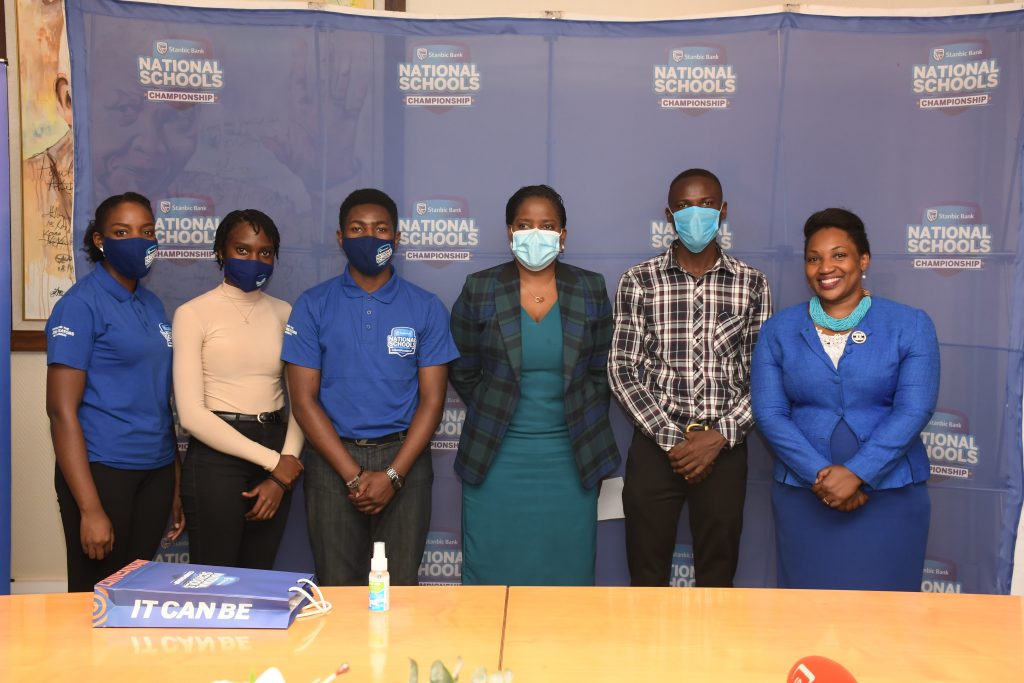
Stanbic Bank Uganda has officially launched the 6th annual National Schools Championship (NSC) to be held under the theme “Empowering the job creators of tomorrow with the main focus on agriculture, business innovation and IT Skilling”.
The National Schools Championship is the Stanbic’s flagship education development initiative aimed at broadening participants’ abilities in applying business principles to develop start-ups that can earn them a future income and become all-round citizens.
The NSC programme is about imparting useful knowledge that can help unleash a sustained spirit of self-initiative and enterprise against a backdrop of limited formal jobs and high youth unemployment. This time around a new category, ‘TeachGrow’, specifically created to target head-teachers and the teaching staff in general, has been introduced as part of this year’s competition.
Barbara Kasekende, Corporate and Social Investment Manager at the bank, said over the years, National Schools Championships has witnessed brilliant and amazing business ideas generated by the students from across the country. Some are operational, funded and closely monitored by the bank and its implementing partners.
For instance, towards the later stages of the 2020 competition, participating students were challenged to come-up with solutions to counter the spread of the Covid-19 pandemic in their communities. In a short space of time, it was gratifying to see a learning platform, a range of sanitizers, disinfectants, paper soap , face masks and other items they came up with
She said; “It was incredible and humbling to see the innovations and determination of these students to deliver their ideas. They were not just being competitive. They were also proactive, stimulated by the challenge, and ready to show their creative side in finding solutions.
“The enthusiasm these children have is infectious! This is what symbolizes the National School Championship. We are getting youngsters to become self-starters by helping them exploit their potential which ultimately contributes to sustaining economic growth. Ever since the Championship started, a total of nearly 1000 business ideas have been generated” Kasekende noted.
She added; “Participants in the National Schools Championships are exposed to a variety of vocational skills, together with basic financial education and life skills principles. At the same time, team work is promoted through group activities and participants are guided through the process of converting a business idea into a business plan.
Anne Juuko, Stanbic Bank’s Chief Executive, said the bank’s sustainability and business success is underpinned buy our commitment to create shared prosperity and promote the wellbeing of the societies in which we operate. This reinforces the basis of our purpose; Uganda is our home; we drive her growth.

Africans say, “It takes a village to raise a child.” With that in mind, we should look at education as a shared responsibility; not leave everything to the government. Last years alone, Stanbic Uganda National Schools Championships successfully reached and impacted the lives of 60,000 students in 100 schools and this year, we want to more students and teachers, Juuko said.
She added; “We want to upon our partners in the private sector to support the young generation by providing opportunities for grooming and giving hands-on training to these children at young age so that they are able to carry-on our legacy even after we are gone.”
In partnership with Roofing’s Group, the National School Championship runs a tree planting programme where it intends to plant over 30,000 fruit tree seedlings in over 100 participating schools countrywide.
The Stanbic National Schools program supports the United Nations Sustainable Development Goals agenda creating an impact on Goals: 1 no poverty, 2 zero hunger, 4 quality education, 5 gender equality, 6 clean water and sanitation, 7 affordable and clean energy, 13 climate action and 17 partnerships of the goals.
It can be when we empower the future leaders and job creators of tomorrow.




























